‘West crying for refugees with one eye, aiming gun with the other’ – Assad (FULL INTERVIEW)
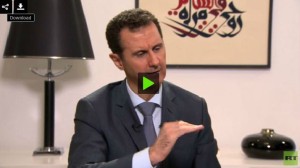 In a rare interview with Russian media outlets, RT among them, Syrian leader Bashar Assad spoke about global and domestic terrorism threats, the need for a united front against jihadism, Western propaganda about the refugee crisis and ways to bring peace to his war-torn nation.
In a rare interview with Russian media outlets, RT among them, Syrian leader Bashar Assad spoke about global and domestic terrorism threats, the need for a united front against jihadism, Western propaganda about the refugee crisis and ways to bring peace to his war-torn nation.Question 1:Mr. President, thank you from the Russian media, from RT, from Rossiyskaya Gazeta, Channel 1, Russia 24, RIA Novosti, and NTV channel, for giving us all the opportunity to talk to you during this very critical phase of the crisis in Syria, where there are many questions that need to be addressed on where exactly the political process to achieve peace in Syria is heading, what’s the latest developments on the fight against ISIL, and the status of the Russian and Syrian partnership, and of course the enormous exodus of Syrian refugees that has been dominating headlines in Europe.
Now, the crisis in Syria is entering its fifth year. You have defied all predictions by Western leaders that you would be ousted imminently, and continue to serve today as the President of the Syrian Arab Republic. Now, there has been a lot of speculation recently caused by reports that officials from your government met with officials from your adversary Saudi Arabia that caused speculation that the political process in Syria has entered a new phase, but then statements from Saudi Arabia that continue to insist on your departure suggest that in fact very little has changed despite the grave threat that groups like ISIL pose far beyond Syria’s borders.
So, what is your position on the political process? How do you feel about power sharing and working with those groups in the opposition that continue to say publically that there can be no political solution in Syria unless that includes your immediate departure? Have they sent you any signal that they are willing to team up with you and your government? In addition to that, since the beginning of the crisis in Syria, many of those groups were calling to you to carry out reforms and political change. But is such change even possible now under the current circumstances with the war and the ongoing spread of terror in Syria?
President Assad: Let me first divide this question. It’s a multi question in one question. The first part regarding the political process, since the beginning of the crisis we adopted the dialogue approach, and there were many rounds of dialogue between Syrians in Syria, in Moscow, and in Geneva. Actually, the only step that has been made or achieved was in Moscow 2, not in Geneva, not in Moscow 1, and actually it’s a partial step, it’s not a full step, and that’s natural because it’s a big crisis. You cannot achieve solutions in a few hours or a few days. It’s a step forward, and we are waiting for Moscow 3. I think we need to continue the dialogue between the Syrian entities, political entities or political currents, in parallel with fighting terrorism in order to achieve or reach a consensus about the future of Syria. So, that’s what we have to continue.
L’intervista prosegue sul sito di “Russia Today“.
Fonte: “Russia Today”, 16 set. 2015

 Articolo Precedente
Articolo Precedente Articolo Successivo
Articolo Successivo![Urgent Statement [about al-Malhamat al-Kubrâ]](http://www.ildiscrimine.com/wp/wp-content/uploads/2016/01/imran-n-hosein-620x350.jpg) Urgent Statement [about al-Malhamat al-Kubrâ]
Urgent Statement [about al-Malhamat al-Kubrâ] 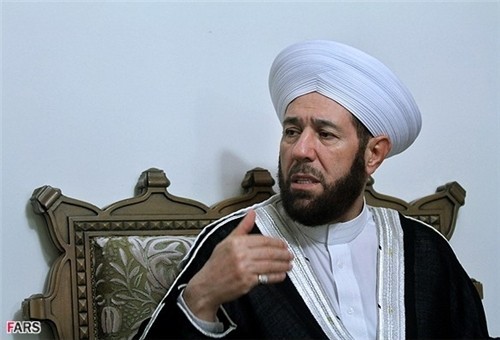 Le Grand mufti de Syrie appelle, à Alger, les imams à immuniser l’Algérie contre la pensée extrémiste
Le Grand mufti de Syrie appelle, à Alger, les imams à immuniser l’Algérie contre la pensée extrémiste 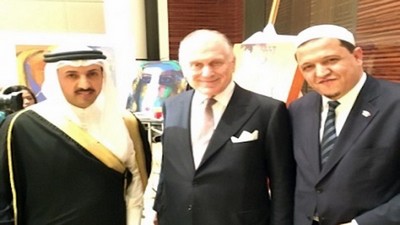 Le Président du Congrès Juif Mondial et Hassan Chalghoumi reçus par le Roi du Bahreïn
Le Président du Congrès Juif Mondial et Hassan Chalghoumi reçus par le Roi du Bahreïn 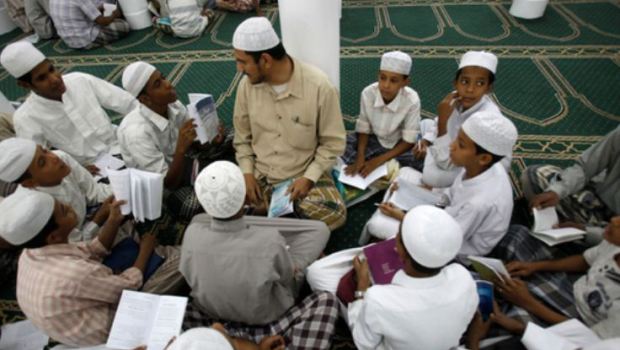 How Sufism could balance Salafism
How Sufism could balance Salafism 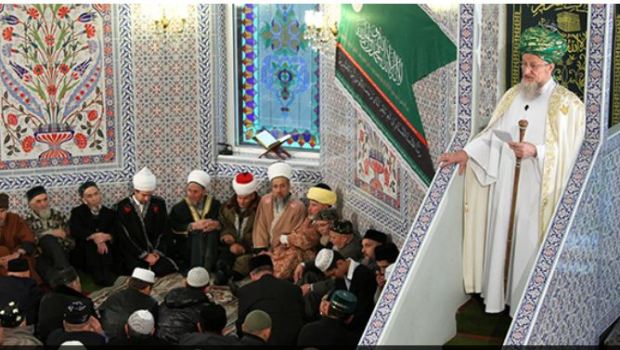 Russian Muslims denounce ISIS as ‘enemies of Islam’
Russian Muslims denounce ISIS as ‘enemies of Islam’ 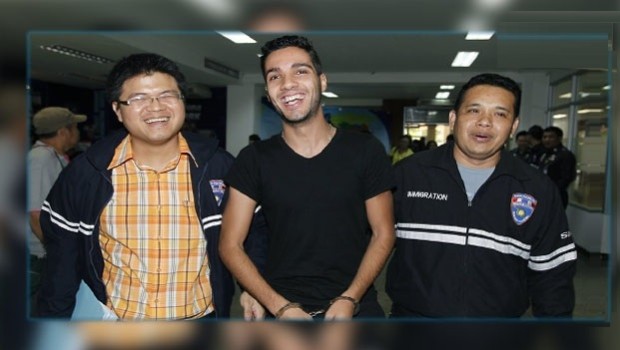 USA: Le célèbre hacker activiste algérien, Hamza Bendelladj, condamné à la peine de mort
USA: Le célèbre hacker activiste algérien, Hamza Bendelladj, condamné à la peine de mort 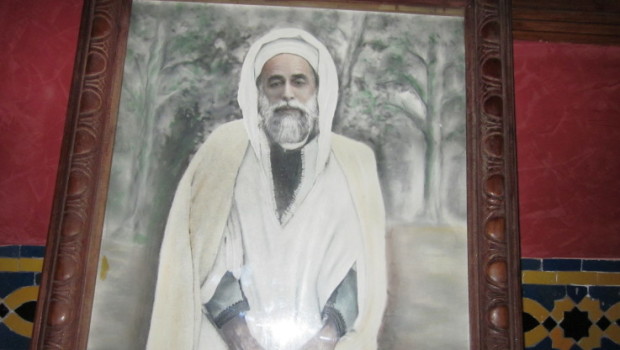 L’UNESCO rend hommage au Cheikh al-Alawi les 28 et 29 septembre
L’UNESCO rend hommage au Cheikh al-Alawi les 28 et 29 septembre 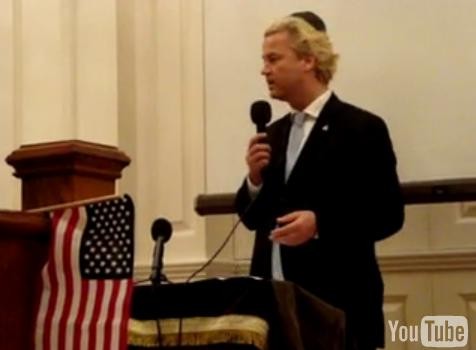 Dutch anti-Islam politician Wilders shows Mohammed cartoons on national TV
Dutch anti-Islam politician Wilders shows Mohammed cartoons on national TV